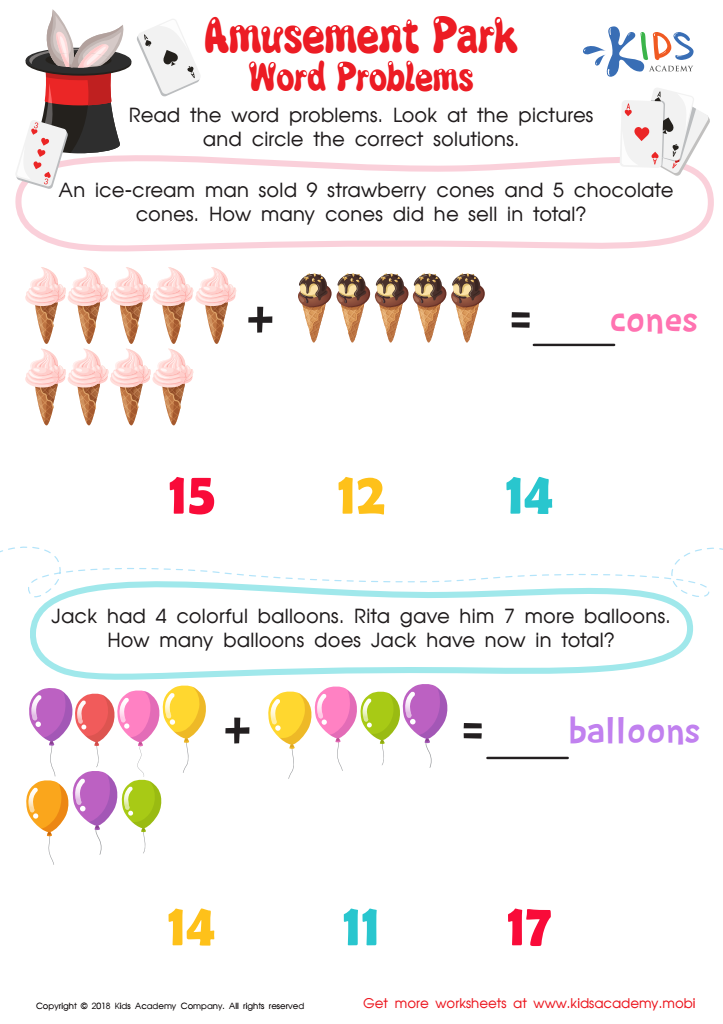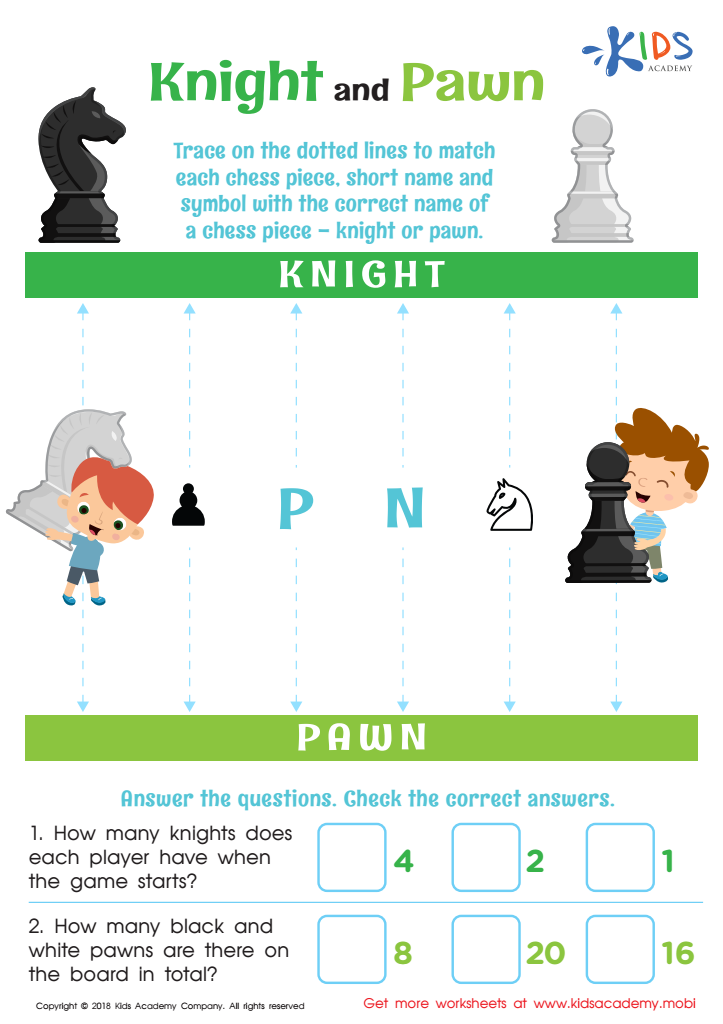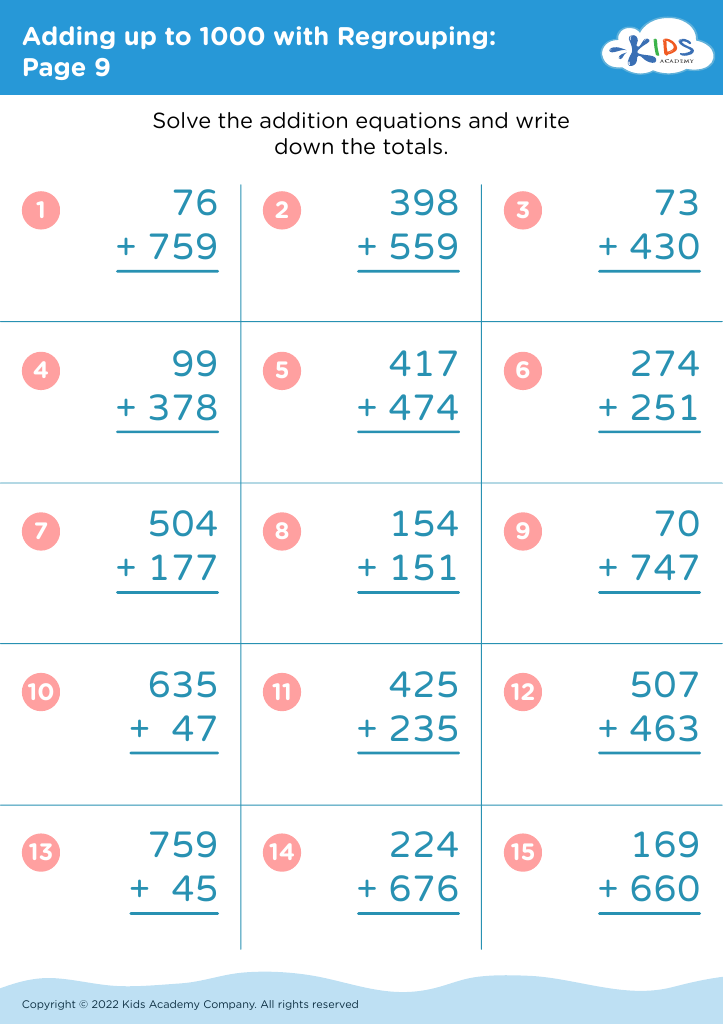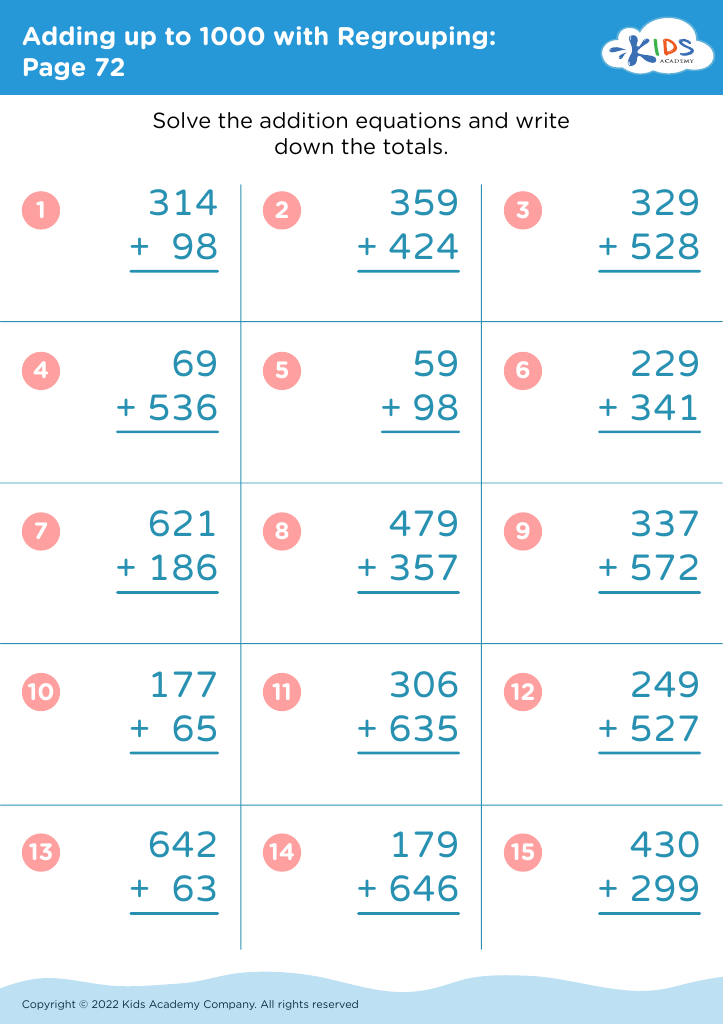Understanding directions Worksheets for 9-Year-Olds
4 filtered results
-
From - To
Welcome to our "Understanding Directions Worksheets" specifically designed for 9-year-olds! These engaging worksheets help children enhance their comprehension and following directions through fun activities. By practicing skills like interpreting written instructions, understanding maps, and following step-by-step guides, kids build essential problem-solving abilities crucial for academic success. Our worksheets cater to different learning styles, ensuring every child can master this vital skill. Perfect for teachers and parents, these printable resources provide a stimulating way for children to learn and grow. Explore our collection today and watch your child gain confidence in understanding and applying directions with ease!


Amusement Park Word Problems Worksheet


Knight and Pawn Worksheet
Understanding directions is a crucial skill for 9-year-olds, and parents and teachers should prioritize its development for several reasons. First, it fosters independence, allowing children to complete tasks, follow routines, and navigate their environment without constant adult guidance. As they practice understanding and following directions, children learn to make decisions and solve problems, essential skills for their academic and personal lives.
Following directions also enhances a child's comprehension and critical thinking abilities. When children decode instructions, they engage their cognitive processes, improving their ability to analyze and process information—skills vital for effective learning across all subjects. Moreover, many classroom activities and tests rely heavily on the ability to understand directions. A child who struggles with this may find themselves frustrated and less motivated, impacting their academic performance.
Socially, following directions is key in group settings, whether in team projects or organized games. It promotes collaboration and helps build essential communication skills. By supporting their child's ability to understand directions, parents and teachers contribute to their overall growth, encouraging responsibility and self-confidence. Thus, prioritizing this skill is essential for nurturing well-rounded, capable, and resilient individuals.



 Assign to My Students
Assign to My Students




.jpg)
















